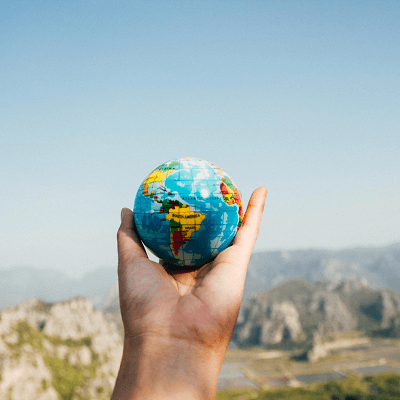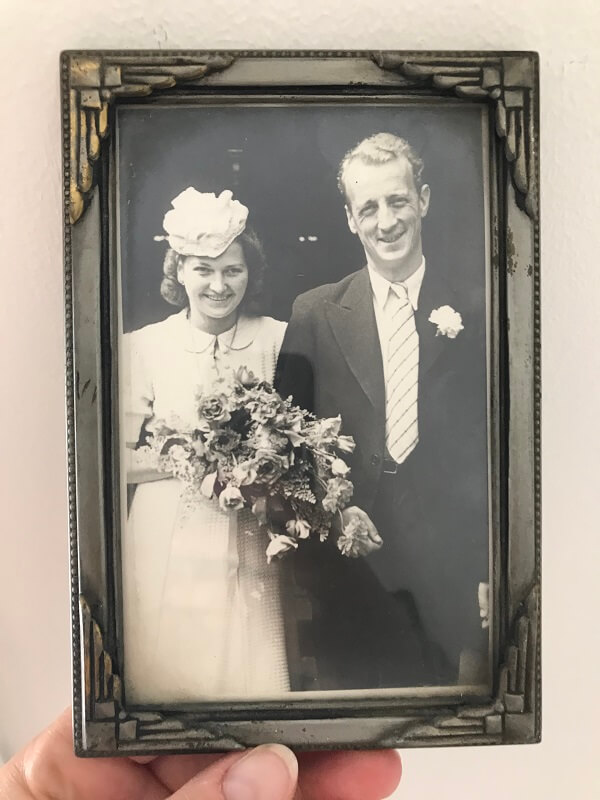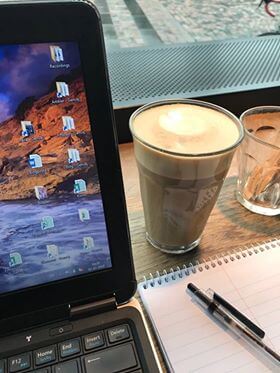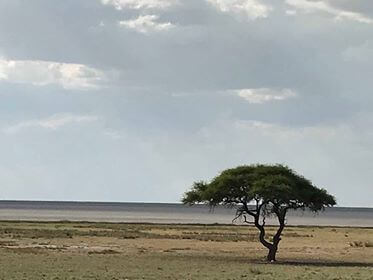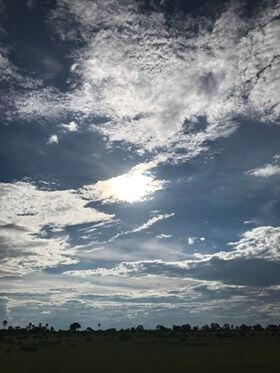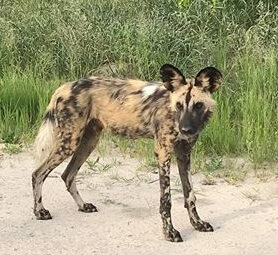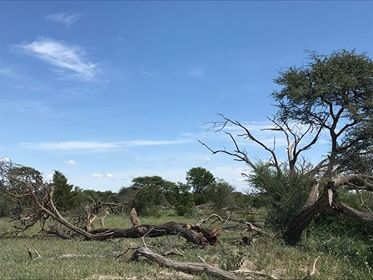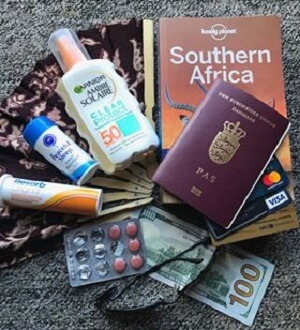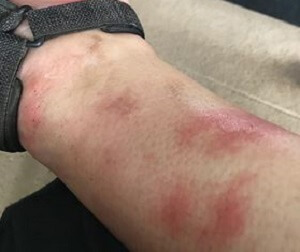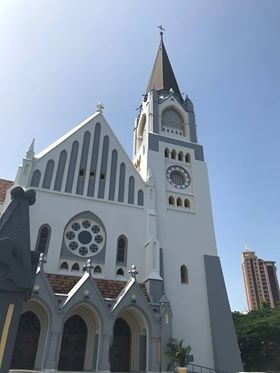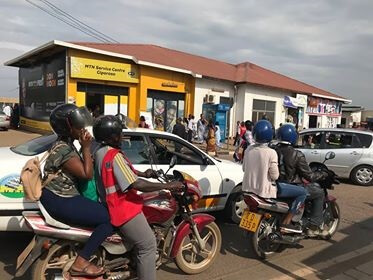Australien brænder
2020-01-02 | Australien, Botswana, Denmark, Indien, Japan, Long read, Nepal, Tanzania | No Comments
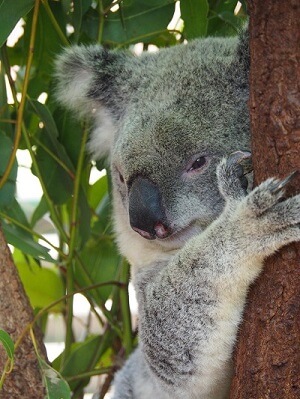
En halv milliard dyr regner man med har mistet livet i Australiens skovbrande – en halv milliard!
Det har videnskabsfolk regnet ud. Hvert år hærges landet af skovbrande i ildsæsonen (’fire season’) som de kalder den hernede, down under. I år har det været rigtig slemt, fordi mange steder har været tørkeramt i månedsvis. Nogle steder i årevis. Sofie og jeg så utallige indtørrede floder og vandløb på vores roadtrip.
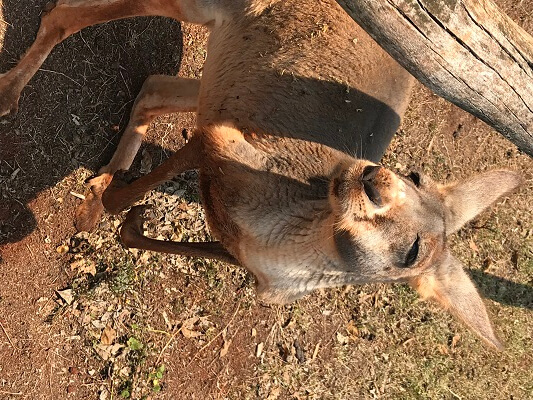
Temperaturerne kommer flere steder over 40 grader – nogle steder over 45 grader. Brandene opstår spontant og breder sig med lynets hast, fordi det samtidig blæser kraftigt. Ingen kan forudsige hvor brandene bevæger sig hen, når vindretningen skifter pludseligt. 1.500 hjem er blevet ødelagt. Alene 400 hjem udbrændte nytårsnat i New South Wales, hvor jeg opholder mig. Flere mennesker er døde og mange savnes.
Tusindvis af mennesker er strandet langs den australske kyst, som har været deres eneste tilflugtssted. Flere byer er isoleret fra omverdenen og har ingen strøm. Tusindvis af brandmænd kæmper for at redde mennesker – de har flere steder opgivet af bekæmpe brandene. Militæret er sat ind for at hjælpe med forsyninger og evakuering af nødstedte mennesker.

Australien brænder op i en usædvanlig tørke og hedebølge – et Australien der på sidste klimatopmøde indædt kæmpede imod en ny klimaaftale. Et Australien som stadig ikke vil erkende nødvendigheden af at skifte kurs, og fortsat graver massive mængder kul op af jorden.
Jeg har mødt konsekvenserne af klimaforandringer i mange lande. Vi har det godt i Danmark. Vi er ikke rigtig ramt af klimaforandringerne – endnu. Den vestlige verden som er den, der forurener mest per indbygger, er den del af verden der har mærket mindst til klimaforandringerne. Ja ja – vi har oversvømmelser og meget regn indimellem, men det er ingenting ifht. hvad de oplever andre steder.
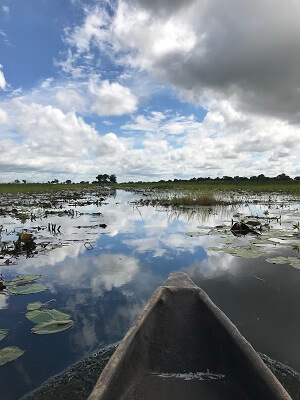
Jeg har set de samme problemer i næsten alle de lande jeg har rejst i Afrika og Asien. Der mangler vand, og når der endelig falder regn, kommer der så meget at det skaber store ødelæggelser.
Tørkeperioderne er strenge, årstiderne begynder at ændre sig. Da jeg var på Serengeti fik jeg at vide, at dyrene migrerede. De var forvirrede, fordi regnen ikke kommer på det normale tidspunkt. For at finde mad bliver de nødt til at migrere ’udenfor sæsonen’.
I deltaet i Botswana strækker sig over 22.000 km2 når der er mest vand. Da jeg var der var vandstanden 2 meter under normalen ifølge min guide. Vi kunne gå tørskoede fra ø til ø for at kigge efter dyr.
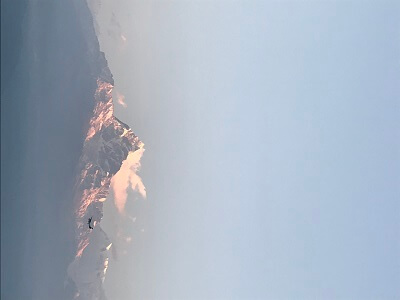
Klimaforandringerne smelter sneen i Himalaya og gletsjerne på Grønland. Det får havene til at stige. Vi oplever mere ekstremt vejr. Den værste tyfon i over 60 år hærgede Tokyo mindre end 2 uger efter jeg havde besøgt landet.
Luftforureningen i Indien er ekstrem. Jeg måtte bruge maske og alligevel kløede det i mine øjne og hals, da jeg besøgte Delhi i november. De mest forurenede byer i verden er i Indien, men alligevel siges det at Canberra i disse dage er den mest forurenede by i verden i disse dage – pga. af skovbrandene i Australien.
Nytårsaftensdag var temperaturerne næsten 40 grader i Sydney. Om aftenen skiftede vejret – det blev koldt, så jeg næsten frøs mens jeg så fyrværkeri. Temperaturerne er nu i midten af tyverne.
Men glæden er kun kort. Den ekstreme hedebølge er på kort visit i det vestlige Australien, men vender tilbage på lørdag. Der varsles over 40 grader og meget høj risiko for skovbrande.
